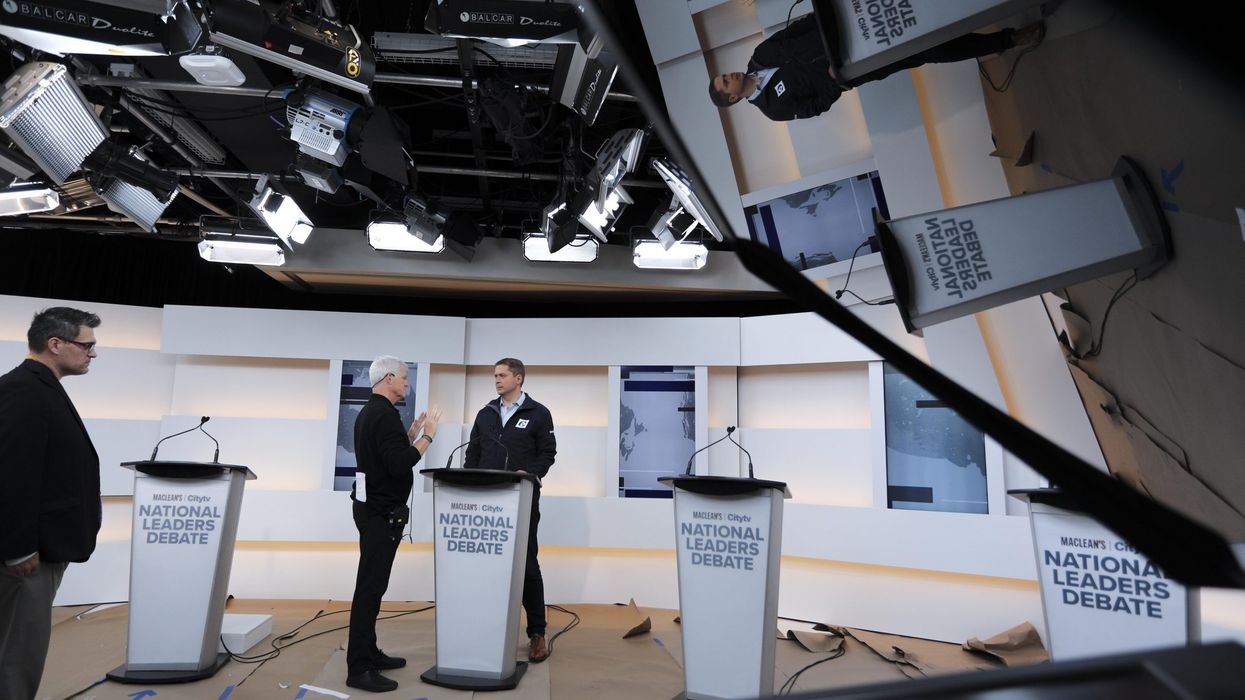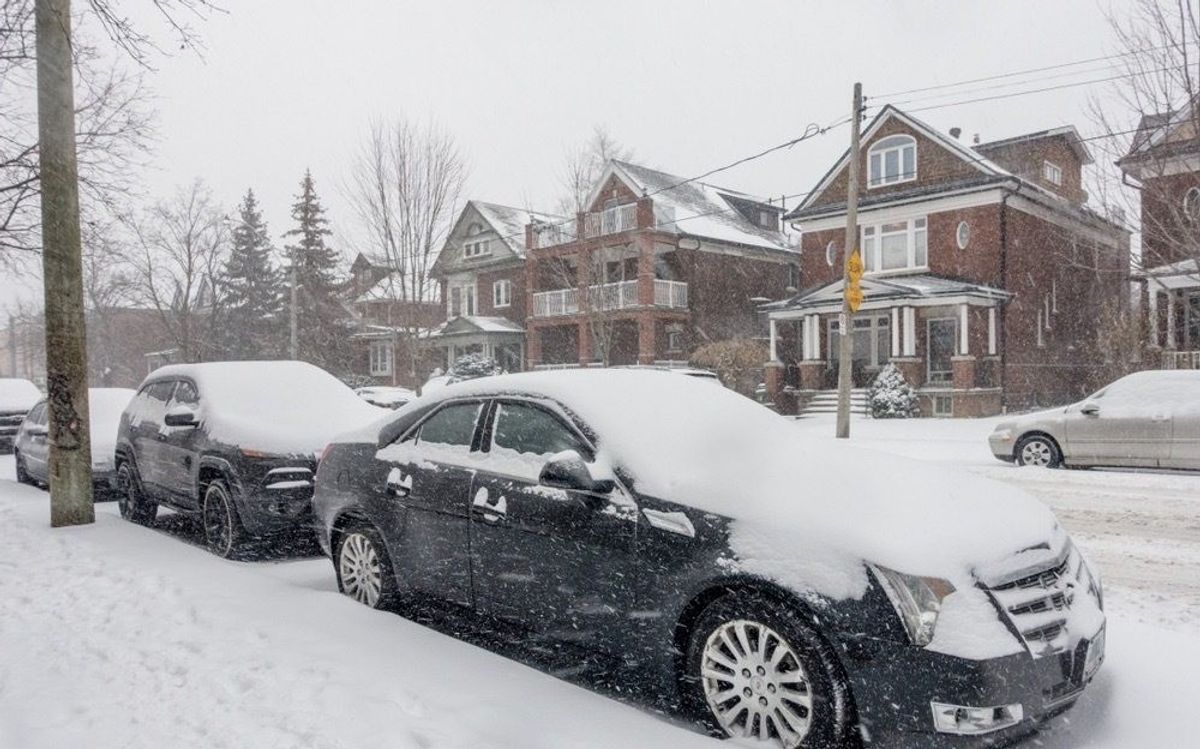As Justin Trudeau, Andrew Scheer, Jagmeet Sing,h Elizabeth May, Yves-Francois Blanchet and Maxime Bernier prepare to take the stage tonight in the final “all-party” English language federal election debate, the issue of housing affordability will definitely part of the discussions.
On Sunday, representatives from five parties, plus delegates from five major groups associated with housing issues held a sold-out debate in Ottawa dedicated solely to housing issues.
READ: Housing Affordability Is A Major Election Issue For Canadians
Tonight’s two-hour debate - which starts at 7 p.m. - will be historic, featuring the highest number of party leaders (six) to participate in the televised event. The topics they will tackle, in addition to affordability, include: Environment and energy; Indigenous issues; Leadership and Canada on the world stage and; Polarization, human rights and immigration.
Each of the topic segments will have a question from an ordinary Canadian, then one from one of the five moderators, a question from one leader to another and then leader-to leader debate. Each leader will likely have, in total, less than 20 minutes of speaking time to make a personal appeal to voters and to challenge their opponents.
It’s been estimated that if you subtract the opening and closing remarks, then each leader will likely have about 10 minutes to drive their message home. In 2011, about 11 million Canadians watched some portion of the event.
READ: Political Promises Surrounding Housing Are Popular But Not Created Equal
The debate can be viewed on all of the main TV networks plus on the Toronto Star and HuffPost Canada websites. It will also be carried on many specialty channels, which means this debate may have the widest distribution in Canadian election debate history.
As you watch tonight’s debate and make or alter your choice, remember that Toronto residents will be able to cast their ballot ahead of the Oct. 21 election day.
As Toronto Storeys’ Jenny Febbraro reported, advanced polling stations open Friday, Oct. 11 to Monday, Oct. 14 from 9 a.m. to 9 p.m. While candidates are still vying for your votes, especially with federal parties addressing their plans to curtail the affordable housing crisis, most have already decided on their party of choice – especially millennials, who plan to come out in droves. According to Abacus, millennial voters (individuals who are born between 1980 and 2000) will have a huge impact on the upcoming federal election.
READ: 500,000 Families Could Benefit From Jagmeet Singh’s Rental Subsidy
Students, faculty, and staff of universities and colleges will have the opportunity to cast their votes on campus between Saturday, Oct. 5 and Wednesday, Oct. 9 from morning until evening. These include Centennial College, George Brown College, Ryerson University, Seneca College, the University of Toronto, and York University.
If you aren’t sure where your polling station is, you can call your nearest Elections Canada office. To do this, enter your postal code into the Voter Information Service website or check your voter registration card.
Not in town? Apply online for a special ballot voting kit. It lets you vote from anywhere in the world. However, your request will have to be mailed out soon as the deadline for receipt of your completed and mailed ballot is Oct. 15.
READ: Conservatives Party’s Renovation Credit Could Help Reduce Energy Use
The kit includes: a special ballot, a blank white envelope, an envelope with your name, riding, and a space where you can sign, a return envelope, and voting instruction.
You might also have the option of using the Canadian embassy or consulate as your mailing address – though you would have to arrange it beforehand.
For online applications, make sure you have digital images of at least two pieces of identification with your picture, name, and current address. That includes a driver’s license, health card, phone bills, and bank statements.
READ: First-Time Home Buyers Incentive Limits Torontonians To Buying Condos
Or, if you are in the country at this point, you can bring any of these pieces of ID to your nearest Elections Canada office – though you’ll have to take an oath.
But no matter how you do it, make sure you exercise your democratic right! Put a sticky note on the front door if you have to! Get ready to vote.





















